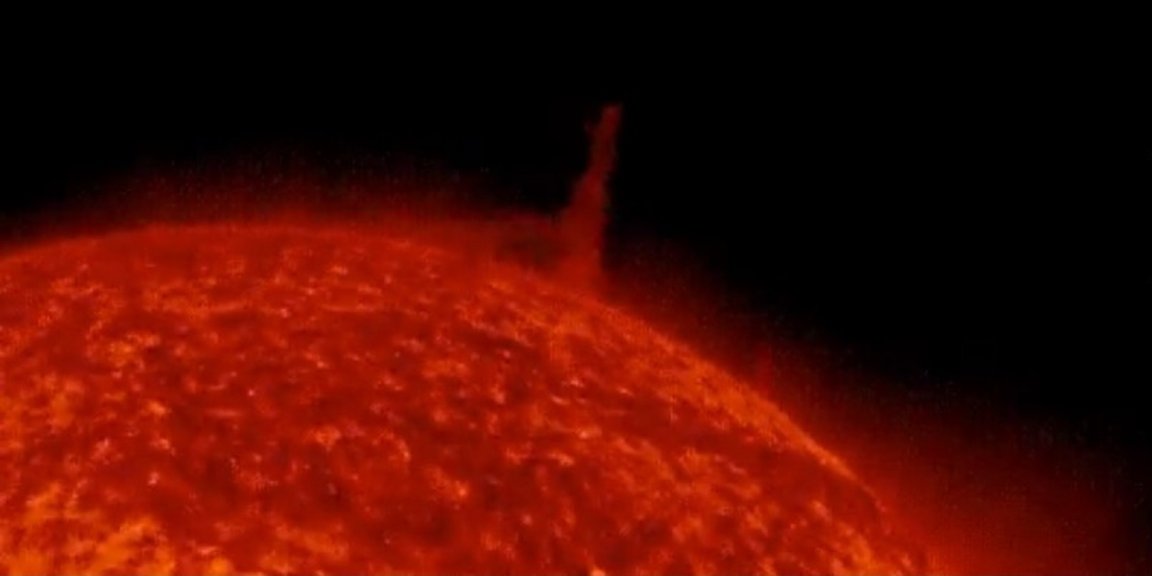
Planet Dwarfer
NASA’s Solar Dynamics Observatory has spotted an absolutely towering tornado roaring on the surface of the Sun, raging with swirls of plasma to such astounding heights that even our entire planet is humbled by its scale.
Astronomers at the observatory had been tracking the “solar tornado” since March 14, until it finally spun itself out four days later and dispersed into a cloud of magnetized gas, according to SpaceWeather.
Thankfully, some keen-eyed amateur astronomers managed to back up SDO’s observations with some of the most stunning looks at the monstrous vortex we’ve seen.
“This 14-Earths-tall swirling column of plasma was raining moon-sized gobs of incandescent material on the Sun,” tweeted astrophotographer Andrew McCarthy, sharing the video he captured. “I can’t imagine a more hellish place.”
Puppet Master
Rather than wind, this tornado is the hellspawn of the Sun’s powerful magnetic fields converging into violent, spiraling structures far more monstrous than the tornado they invisibly puppet.
“What we’re seeing here is polar crown filament,” Mathew Owens, a space physicist at the University of Reading, told Insider. “A filament is a huge, twisted magnetic [structure] that sits above the Sun’s surface, sometimes for months.”
Luckily, our world is safe from the throes of the planet-dwarfing tornado. It may be 14 Earths tall, but our planet is roughly 11,700 Earths away from the Sun — and its trajectory is nowhere close to Earth-bound, anyway.
“After eruption, this one headed off over the north pole of the Sun, so definitely not coming towards us or any of the other planets,” Owens assured.
That being said, there’s been a lot of blustering and billowing from the Sun lately, and some of its ejecta will be coming our way.
Several coronal holes have opened up on the Sun’s surface, including one estimated to be 30 times larger than Earth, heaving solar winds towards our planet that have already begun to arrive.
More on the Sun: Scientists Detect “Heartbeat-Like” Signal From the Sun